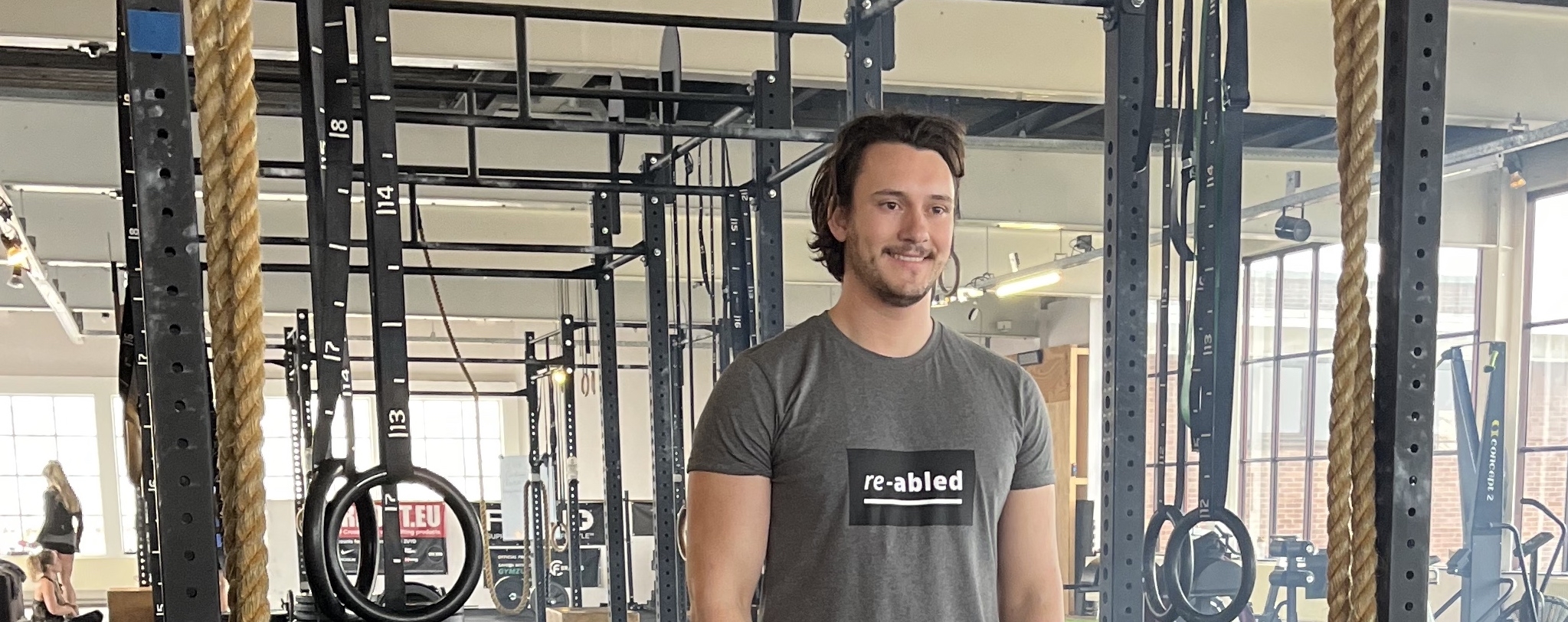
'Through contact with others, I have accepted my disability'
Danny Wagenhuis (27) was born without a fibula. Partly because of this, his right leg is shorter and he has limited use of his ankle. Although his disability does not bother him as a child, he has to learn to accept it again later in life. His introduction to the Mentelity Foundation plays an important role in this.
"As a child, I was told that I had a weak knee. This was solved by building a whole structure around it to spare the joint," Danny says. "I did play a lot of sports, played soccer at a reasonable level, as a goalkeeper, and basically tried any sport I liked. But always there was that weak knee. Until very much later, I my work at a gym, I came in contact with someone with exactly the same disability, but a totally different prosthesis. He was very enthusiastic about it and so I went to see his prosthetist. He determined that I had a strong knee and thigh and that the more I relieved the leg, the weaker it would become. Instead, I had to start training the leg!"
Danny lives in Heemstede, the prosthetist in question is in Assen, so that's quite a journey: two hours there, two hours back. When the prosthesis broke more and more often, he went to see a doctor at the hospital. He asks if they know of anyone in the area who is even better than the prosthetist in Assen. That's how he comes into contact with Frank Jol. "Again, he totally looked at my prosthesis," Danny says. "It wasn't: here you have a prosthesis and good luck with it, but he asked me what I wanted to achieve and started to think of a solution for that. Four, five people thought along, from different areas of expertise. And so now I have a prosthesis that fits me much better. The advice used to be to put as little strain on the leg as possible, whereas now the starting point is to strain it where possible, so that the leg gets stronger. It's different thinking, more at the top sports level." Smiling, he adds, "Frank and his team thought my leg was a nice challenge. It's different than 'just' a stump anyway."
"Working out in shorts I never did. Now I do!"
Swimming
Danny gets by just fine with his ADL prosthesis for the first 26 years of his life. He also doesn't need a separate device for his work as a sports coach. Until Frank Jol brings up swimming prosthesis. Danny has been playing sports all his life, but he shuns swimming. When friends go to the pool, or dive in the Amstel in the summer, he stays home. Or with long pants on the side. "A daily prosthesis should not get wet. And of course you can just take your leg off then, but that doesn't walk nicely on the beach. I don't want to have to think about having to take my leg on and off all the time, with that it emphasizes so much that you are different. That swimming prosthesis is great. I've had it since August and during my vacation I went diving for two weeks. It was great."
Because such a swimming prosthesis must also be paid for, Danny then comes into contact with the Mentelity Foundation. Together with them, he goes through an application at the municipal Wmo counter. "That went very quickly. The municipality now pays part of it, the Mentelity Foundation has paid the rest, and I'm now trying to raise that myself through crowdfunding," Danny explains. "The great thing about the foundation is also that you come into contact with other people with disabilities. Until then I had never seen anyone else with a prosthesis, I thought I was the only one. It wasn't that I was ashamed of it, but I put it away. Working out in shorts was something I had never done. Until I met so many people at the Mentelity Foundation, young and old, all with their own stories and disabilities, who all think a prosthesis is perfectly normal. Then you start to find it normal yourself. By now I've accepted it so much that I do sport in shorts and no longer mind, but rather think it's special that I have what I have."
Text: Robin Wubben